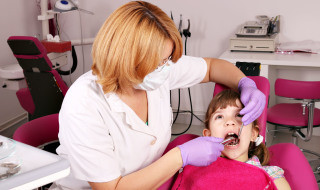 It cost the NHS £3.1m to carry out ‘minor extractions’ from under-18s, over the 2012-13 financial year, and a further £27.4m for the ‘extraction of multiple teeth’.
It cost the NHS £3.1m to carry out ‘minor extractions’ from under-18s, over the 2012-13 financial year, and a further £27.4m for the ‘extraction of multiple teeth’.
The bills were set out by health minister Earl Howe in answer to a parliamentary question tabled by Baroness Gardner of Parkes, a Conservative peer.
More detailed statistics, seen by Dentistry, show that 6,607 children underwent minor extractions in 2012-13, the most recent figures, each costing £462 – making a total cost of £3.1m.
But those figures are dwarfed by the 38,208 under-18s who had multiple teeth pulled out, a process that costs the taxpayer £717, with a total bill of £27.4m.
In her question, Baroness Gardner asked ministers if they would ‘consider setting up day-care clinics that could carry out such work’, presumably cutting the cost.
But, in reply, Earl Howe said that was ruled out by the recommendations of the 2000 report A Conscious Decision, where extraction required general anaesthesia.
The report set out that patients should be close to ‘high quality critical care facilities’, which meant a hospital setting.
Earl Howe said: ‘There are currently no plans to change this.
‘Many extractions are carried out on a day case basis.
‘Whether the extraction is carried out as a day case, or requires an overnight admission, is a matter for the clinicians involved.
Earl Howe added that 70% of five-year-olds had no dental decay, but admitted: ‘We recognise that significant inequalities remain.
‘Wider work is under way through dental contract reform and other prevention focussed initiatives to improve oral health.’
In a House of Lords debate earlier this year, Earl Howe used stronger language, describing high rates of dental caries – a ‘preventable disease’ – as ‘unacceptable’ in many areas.
Dentistry reported how hospital admissions for dental caries in children is a staggering 221 times higher in the worst-performing parts of England than the best.
Figures released by the chief medical officer showed that 1,550 under-fives per 100,000 were taken into hospital in Rotherham – a total of 584 youngsters, over a three-year period.
But, in Leicestershire, the best-performing area, just six children aged between one and four were admitted – a rate of only seven per 100,000 youngsters of that age.
Public Health England (PHE) has urged local authorities to look again at the case for water fluoridation, because of the enormous difference it makes to the health of children’s teeth.


